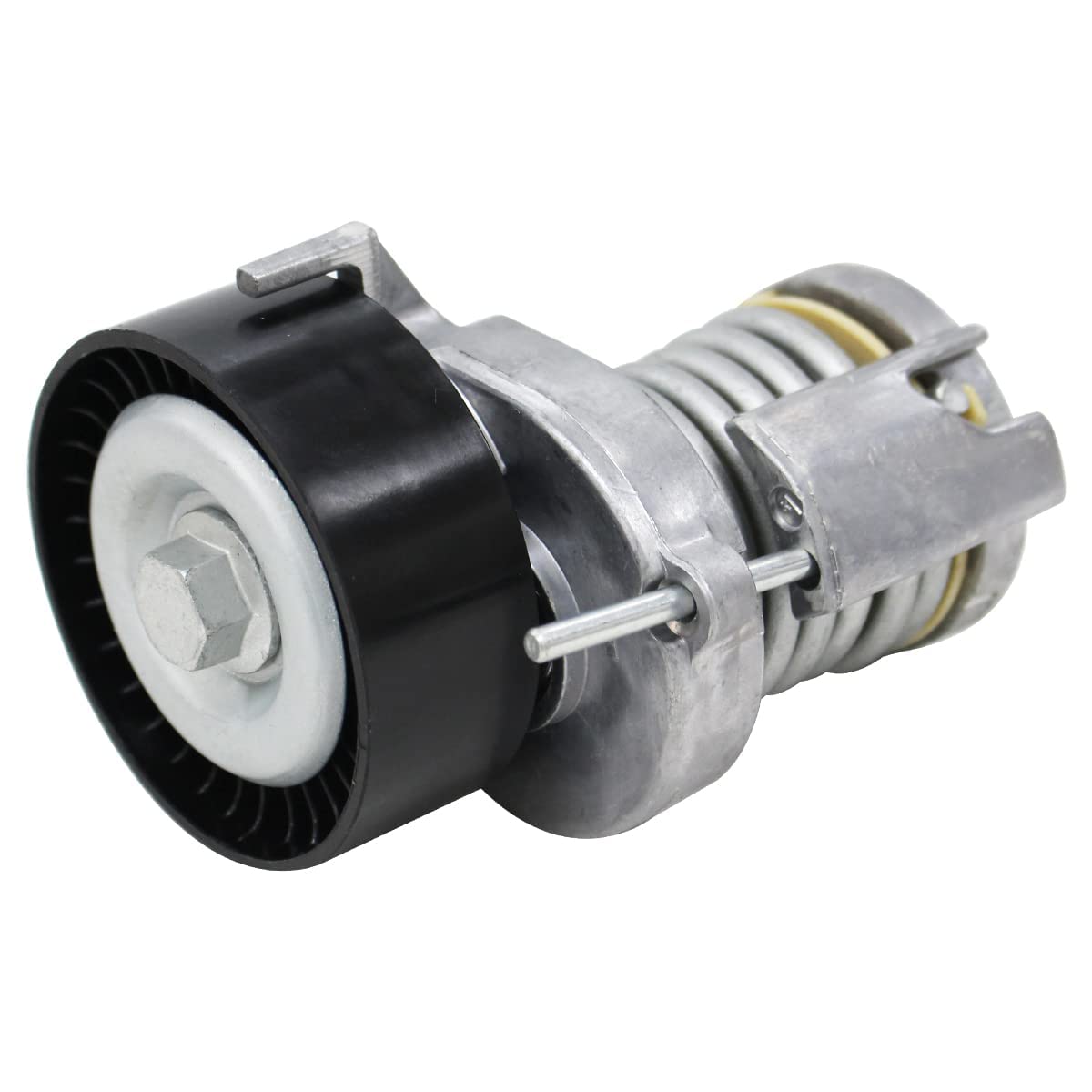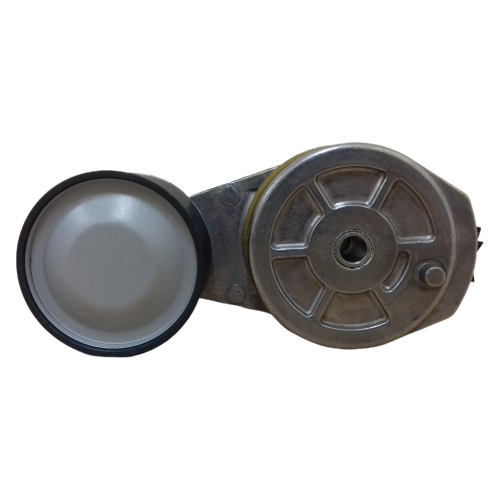Product Description
Product Description
| OuChai NO. | Oem NO. | Application | Size |
| OC95717 | XS7E6A228CB XS7E6A228CC 1125419 1201181 |
FORD | Standard |
1. We are a professional manufactory product belt tensioner for truck and passenger car.
2. Advantage:
1)Reliable and durable, Strict quality control.
2))FOB\CIF\C&F price.
3)Small MOQ.
4)Specialized in belt tensioner.
5)Wholesale for auto truck parts.
6)Supply package.
3. Packing:
1) OUCHAI packing
2) Neutral packing
3) customer request
4. Shipping:
1. By sea, DHL, FedEx, ect.
2. Within 15 days after receiving 30% deposit
Certifications
Company Profile
HangZhou OUCHAI TECHNOLOGY CO.,LTD is located in Kunyang Nailali Industrial Zone, Xihu (West Lake) Dis., HangZhou. Our factory is a professional manufacturer of producing belt tensioner with designing and selling.
Our company was founded in 2014, with RMB 3 million registered capital, and covers an area 2000 square meters. There are 30 workers in our factory, including 2 engineers and 6 technicians.
Our company fully implement IATF16949 quality management system and own the advanced production equipment, such as CNC lathe, punching machine, die-casting machine, assembly line and testing equipment.
Our products mainly exported to European, America and South East, and deeply praised by customers. We always adhere to the principle of “integrity is foundation, quality is first, CZPT cooperation” and we’ll move forward all the way.
Detailed Photos
/* January 22, 2571 19:08:37 */!function(){function s(e,r){var a,o={};try{e&&e.split(“,”).forEach(function(e,t){e&&(a=e.match(/(.*?):(.*)$/))&&1
| After-sales Service: | 1year |
|---|---|
| Warranty: | 1year |
| Car Make: | Ford |
| Samples: |
US$ 50/Piece
1 Piece(Min.Order) | Order Sample |
|---|
| Customization: |
Available
| Customized Request |
|---|
.shipping-cost-tm .tm-status-off{background: none;padding:0;color: #1470cc}
|
Shipping Cost:
Estimated freight per unit. |
about shipping cost and estimated delivery time. |
|---|
| Payment Method: |
|
|---|---|
|
Initial Payment Full Payment |
| Currency: | US$ |
|---|
| Return&refunds: | You can apply for a refund up to 30 days after receipt of the products. |
|---|

What are the reliability and durability aspects of V-belt tensioners in ensuring consistent tension?
Reliability and durability are crucial aspects of V-belt tensioners in ensuring consistent tension in V-belt systems. A reliable and durable tensioner is essential for maintaining optimal belt performance, preventing slippage, reducing wear, and maximizing the lifespan of the belts. Here’s a detailed explanation of the reliability and durability aspects of V-belt tensioners:
- Construction Materials:
- Bearing Quality:
- Sealing and Lubrication:
- Tensioner Design and Engineering:
- Testing and Quality Control:
- Maintenance and Service:
- Manufacturer Reputation and Warranty:
The choice of construction materials plays a significant role in the reliability and durability of V-belt tensioners. High-quality materials, such as robust metals or durable polymers, are commonly used to withstand the forces and stresses encountered during operation. The materials should possess sufficient strength, corrosion resistance, and resistance to environmental factors to ensure long-term reliability and durability.
The quality and performance of the bearings used in V-belt tensioners are critical for their reliability. High-quality bearings ensure smooth rotation and proper functioning of the tensioner. Bearings with seals or protective coatings can provide additional protection against contamination, moisture, and debris, enhancing their durability and longevity.
Effective sealing and lubrication mechanisms in tensioners contribute to their reliability and durability. Seals or gaskets are used to prevent the ingress of contaminants, moisture, or dust into the tensioner, protecting its internal components and preserving its performance. Proper lubrication of moving parts, such as bearings or pivot points, reduces friction and wear, ensuring consistent tensioning and extending the tensioner’s lifespan.
The design and engineering of V-belt tensioners are crucial for their reliability and durability. A well-designed tensioner takes into account factors such as load capacity, operating conditions, and the specific requirements of the application. It should be engineered to withstand the expected forces, vibrations, and temperature variations encountered during operation, ensuring consistent tensioning over an extended period.
Manufacturers often subject V-belt tensioners to rigorous testing and quality control measures to ensure their reliability and durability. Testing may include load testing, endurance testing, temperature cycling, vibration testing, and environmental exposure testing. These measures help identify potential weaknesses, optimize design parameters, and validate the performance and durability of the tensioners before they are released to the market.
Proper maintenance and regular servicing of V-belt tensioners are essential for their long-term reliability. Following the manufacturer’s recommended maintenance schedule, including lubrication, inspection, and replacement of worn components, helps ensure consistent tensioning and extends the tensioner’s lifespan. Regular maintenance also allows for the early detection of any potential issues, allowing for timely corrective actions.
The reputation of the manufacturer and the warranty provided for the tensioners can be indicators of their reliability and durability. Established manufacturers with a track record of producing high-quality products are more likely to offer reliable and durable tensioners. A warranty that covers manufacturing defects or premature failures provides assurance and demonstrates the manufacturer’s confidence in the product’s reliability and durability.
In summary, the reliability and durability of V-belt tensioners are critical for ensuring consistent tension in V-belt systems. Factors such as construction materials, bearing quality, sealing and lubrication, tensioner design and engineering, testing and quality control, maintenance and service, as well as the manufacturer’s reputation and warranty, all contribute to the overall reliability and durability of the tensioners. By selecting high-quality tensioners and following proper maintenance practices, users can ensure consistent tensioning and maximize the performance and lifespan of V-belt systems.

Can you provide examples of products or machinery that rely on V-belt tensioners for efficient operation?
There are numerous products and machinery across various industries that rely on V-belt tensioners for efficient operation. V-belt tensioners play a crucial role in maintaining proper belt tension, preventing slippage, and ensuring optimal power transmission. Here are some examples of products and machinery that commonly utilize V-belt tensioners:
- Automotive Engines:
- Industrial Machinery:
- HVAC Systems:
- Agricultural Equipment:
- Construction and Mining Equipment:
- Power Generation Systems:
- Food Processing Machinery:
In automotive engines, V-belt tensioners are essential for driving components such as the alternator, water pump, power steering pump, and air conditioning compressor. These tensioners help maintain proper belt tension, ensuring efficient power transfer and reliable operation of these critical engine accessories.
V-belt tensioners are widely used in various industrial machinery, including conveyors, pumps, compressors, fans, and blowers. These tensioners ensure optimal power transmission, prevent belt slippage, and maintain consistent performance in industrial applications.
Heating, ventilation, and air conditioning (HVAC) systems rely on V-belt tensioners to drive components such as fans, blowers, and air handling units. Proper tensioning of V-belts in these systems ensures efficient airflow, reliable operation, and optimal performance, contributing to effective temperature control in residential, commercial, and industrial settings.
Agricultural machinery, such as tractors, harvesters, irrigation pumps, and grain conveyors, often incorporate V-belt tensioners. These tensioners play a vital role in power transmission, ensuring reliable operation and maximizing productivity in agricultural processes.
V-belt tensioners are commonly used in construction and mining equipment, including excavators, bulldozers, loaders, and crushers. These tensioners help drive essential components such as hydraulic pumps, generators, and conveyors, ensuring efficient power transmission and reliable performance in demanding construction and mining operations.
V-belt tensioners are frequently used in power generation systems, including generators and turbines. These tensioners help drive auxiliary components such as cooling fans, pumps, and alternators, ensuring reliable power transmission and optimal functionality in power generation plants.
In the food processing industry, V-belt tensioners are commonly employed in machinery used for food production, packaging, and processing. They are used in equipment such as mixers, conveyors, blenders, slicers, and food processors. V-belt tensioners ensure reliable power transmission, consistent operation, and adherence to hygiene standards in food processing facilities.
These are just a few examples of the wide range of products and machinery that rely on V-belt tensioners for efficient operation. V-belt tensioners are utilized in numerous other industries and applications where V-belts are used for power transmission. Their critical role in maintaining optimal belt functionality makes them an integral component in various systems that require reliable and efficient power transfer.

In what industries and machinery are V-belt tensioners commonly used for optimal belt functionality?
V-belt tensioners are commonly used in various industries and machinery to ensure optimal belt functionality. Here’s a detailed explanation of the industries and machinery where V-belt tensioners are frequently employed:
- Automotive Industry:
- Industrial Manufacturing:
- HVAC Systems:
- Agricultural Equipment:
- Construction and Mining:
- Power Generation:
- Food Processing:
In the automotive industry, V-belt tensioners are extensively used in engines to drive multiple components, such as the alternator, water pump, power steering pump, and air conditioning compressor. These tensioners help maintain proper belt tension, ensuring efficient power transmission and reliable operation of these critical engine accessories.
V-belt tensioners find wide application in various industrial manufacturing processes. They are commonly used in machinery such as conveyors, pumps, compressors, fans, and blowers. These tensioners ensure optimal power transmission, prevent belt slippage, and maintain consistent performance in these industrial applications.
Heating, ventilation, and air conditioning (HVAC) systems rely on V-belt tensioners to drive components such as fans, blowers, and air handling units. Proper tensioning of V-belts in these systems ensures efficient airflow, reliable operation, and optimal performance, contributing to effective temperature control in residential, commercial, and industrial settings.
In the agricultural sector, V-belt tensioners are commonly utilized in various machinery, including tractors, harvesters, irrigation pumps, and grain conveyors. These tensioners play a vital role in power transmission, ensuring reliable operation and maximizing productivity in agricultural processes.
Construction and mining equipment, such as excavators, bulldozers, loaders, and crushers, often incorporate V-belt tensioners. These tensioners help drive essential components, such as hydraulic pumps, generators, and conveyors, ensuring efficient power transmission and reliable performance in demanding construction and mining operations.
V-belt tensioners are frequently used in power generation systems, including generators and turbines. These tensioners help drive auxiliary components, such as cooling fans, pumps, and alternators, ensuring reliable power transmission and optimal functionality in power generation plants.
In the food processing industry, V-belt tensioners are commonly employed in machinery used for food production, packaging, and processing. They are used in equipment such as mixers, conveyors, blenders, slicers, and food processors. V-belt tensioners ensure reliable power transmission, consistent operation, and adherence to hygiene standards in food processing facilities.
V-belt tensioners are also used in various other industries and machinery where V-belts are employed for power transmission. Some additional examples include marine applications, material handling equipment, printing and paper industries, textile machinery, and woodworking equipment. The versatility and effectiveness of V-belt tensioners make them a popular choice for ensuring optimal belt functionality across a wide range of industries and machinery.


editor by CX 2024-04-19